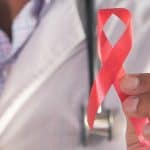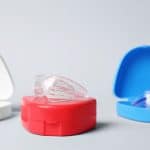Understanding Oral Cancer: Why Awareness Matters
Oral cancer is a serious health concern involving malignant growths in the mouth, tongue, lips, throat, and sinuses. This type of head and neck cancer, if not detected and treated early, can be life-threatening. The good news is that when caught early, oral cancer is highly treatable.
At Expat Dental, we stress the significance of Oral Cancer Awareness each year due to the concerning increase in cases worldwide, notably among younger people and those who do not smoke. Let’s delve into the potential reasons behind this trend and explore effective methods for prevention and detection.
Spotting the Signs: Key Symptoms of Oral Cancer
Oral cancer represents a major global health issue, as the World Health Organization reports that over 389,846 new cases were identified worldwide in 2022. In the United States alone, approximately 54,000 Americans are diagnosed with oral or oropharyngeal cancer each year. This underscores a steady rise in incidence rates in recent years, partly linked to an increase in cases associated with the human papillomavirus (HPV). Men are twice as likely to develop oral cancer as women.
Common Symptoms of Oral Cancer
- Persistent mouth sores – Sores or ulcers in your mouth that don’t improve within two weeks.
- Lumps or thick patches – Any lump, thickened area, or roughness inside your mouth, on your lips, or throat.
- Red or white patches – Unusual red or white patches that appear on your gums, tongue, tonsils, or the mouth lining.
- Pain or numbness – Unexplained pain, soreness, or numbness in your mouth, lips, or chin.
- Difficulty chewing or swallowing – Sensations of obstruction in the throat or difficulty moving your jaw or tongue effectively.
- Loose teeth – Teeth becoming loose without an apparent dental reason.
- Chronic sore throat or hoarseness – Persistent sore throat or significant changes in your voice.
- Swelling in the jaw or neck – Swelling that might cause dentures to fit poorly or result in jaw discomfort.
- Unexplained weight loss – Unexpected weight loss that isn’t related to your diet or activity levels.
- Ear pain – Pain in your ears that isn’t linked to hearing loss or infections.
These symptoms do not automatically indicate cancer, but they should not be overlooked — particularly if they persist for over two weeks. Early detection is crucial, so reach out to a healthcare provider or dentist if you notice any of these signs.
Prevention First: How to Lower Your Risk of Oral Cancer
Small, consistent lifestyle changes can make a big difference in preventing oral cancer. Remember: prevention is always better than cure!
How to Lower Your Risk of Oral Cancer
-
Avoid Tobacco in All Its Forms – Using tobacco products such as cigarettes, cigars, pipes, or chewing tobacco significantly elevates your risk. Kicking the habit is one of the most vital actions you can take.
-
Moderate Your Alcohol Intake – Heavy and consistent alcohol consumption is a prominent risk factor. If you choose to drink, aim for moderation.
-
Consider the HPV Vaccine – The human papillomavirus, particularly HPV-16, is associated with cancers of the oropharynx. The HPV vaccine is a safe and effective preventive measure.
-
Engage in Safe Sexual Practices – Oral HPV can be spread through unprotected oral sex. Use protection and stay educated to help minimize your risk.
-
Maintain Excellent Oral Hygiene – Daily brushing and flossing, along with routine dental check-ups, can help catch any issues early and maintain a healthy mouth.
-
Adopt a Nutritious Diet – A diet rich in fruits, vegetables, and antioxidants can bolster your immune system and may deter cancer.
-
Shield Your Lips from the Sun – Applying lip balm with SPF and avoiding excessive sun exposure can lower your chances of lip cancer.
-
Conduct Regular Self-Examinations – Routinely inspect your mouth for any unusual sores, lumps, or discolorations. Catching abnormalities early can lead to quicker diagnosis and treatment.
-
Schedule Regular Dentist Visits – Dentists are equipped to identify early signs of oral cancer in routine examinations — often before you even notice symptoms.
-
Understand Your Family Medical History – If there’s a history of oral or other cancers in your family, consult with your doctor about tailored strategies to mitigate your risk.
The Importance of Early Detection: When to See a Specialist
Early detection of oral cancer significantly improves treatment outcomes by identifying the disease at a stage when it is most manageable. When caught early, oral cancer can often be treated more effectively, leading to higher survival rates and a better quality of life for patients. If you’ve noticed any of the symptoms mentioned earlier lingering for more than two weeks, it’s wise to schedule a visit with your dentist or doctor.
Why Dentists Are the First Line for Oral Cancer
Dentists truly are the first line of defense against oral cancer, and here’s why:
-
Frequent Check of Mouth and Throat – Dentists regularly examine areas prone to oral cancer, such as your tongue, cheeks, gums, and throat, during routine cleanings and checkups.
-
Experts in Identifying Early Signs – Dentists are skilled at spotting subtle changes like sores, lumps, and unusual patches, often before you notice any symptoms yourself.
-
Incorporated Screenings During Visits – Many dental practices include oral cancer screenings as part of routine visits, especially for those who have risk factors like smoking, drinking, or HPV.
-
Comprehensive Oral Health Assessment – Dentists look at your overall oral health, not just checking for cavities or gum issues, but also for abnormalities that might indicate cancer.
Remember, your dentist does more than protect your smile — they could be your lifesaver. Regular visits aren’t just about clean teeth; they play a crucial role in cancer prevention. Make sure you’ve seen your dentist in the last 6 months. If you haven’t, now’s the time to set up an appointment!







